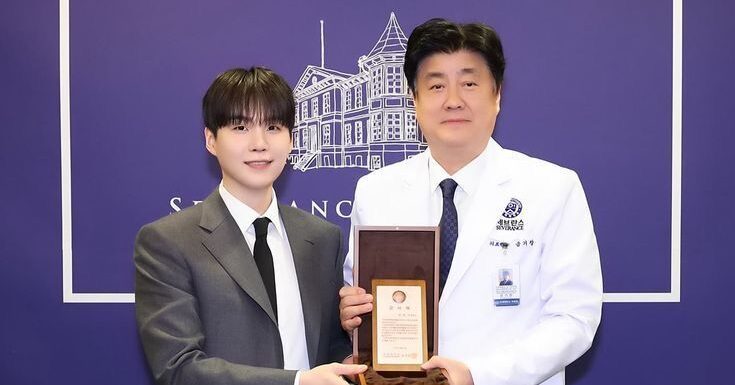
Min Yoongi Treatment Center Opens in Seoul: A Milestone for Autism Care and Music Therapy
Source of Image: Pinterest On September 30, the Min Yoongi Treatment Center officially opened at Severance Hospital in Seoul, establishing a groundbreaking facility dedicated to children with Autism Spectrum Disorder (ASD). The center, named after BTS member Suga’s legal name, Min Yoongi, was made possible through his generous 5 billion won ($3.6 million) donation. This initiative is not just a gift from an artist to his fans, but a profound contribution to the nation, reshaping how South Korea approaches therapy, care, and inclusivity for neurodiverse children. Healing Through Music: A Vision Realized Yoongi has often spoken about how music was his greatest source of comfort and strength during difficult times. He once shared that creating music helped him cope with struggles and heal from wounds unseen. The Min Yoongi Treatment Center carries forward this philosophy by merging behavioral science with music therapy, proving that healing is not only clinical but also emotional and creative. The center offers: Specialized therapy rooms for language and behavioral development Group spaces equipped with acoustic and soundproof systems designed for music-based social therapy Waiting areas for families, built to provide warmth and comfort Art exhibitions by autistic artist Lee Gyu-jae, celebrating creativity within the autism community By intertwining clinical support with artistic expression, this facility represents Yoongi’s belief that music has the power to transform lives far beyond the stage. Impact on the Nation and the Future The establishment of this center goes beyond individual care. It sets a national precedent in several ways: 1. Raising Autism Awareness – South Korea has historically struggled with stigma around developmental and mental health conditions. This center brings autism into the public conversation with compassion and dignity, reducing misconceptions and encouraging inclusivity. 2. Shaping Healthcare Innovation – By integrating music-based therapy into clinical care, the facility introduces a progressive approach that could inspire similar centers nationwide, paving the way for new healthcare models. 3. Supporting Families – Autism impacts not only children but entire families. The center’s design prioritizes both treatment and emotional support, creating a safe space where parents feel cared for too 4. Long-Term Benefits – Children who receive early and specialized support are more likely to thrive academically, socially, and emotionally. This will contribute to a more inclusive future workforce and society. Yoongi’s Legacy of Compassion Suga has consistently shown that his artistry extends beyond music charts and global stages. Through donations, campaigns, and advocacy, he has embodied the idea that true influence comes from how one uplifts others.By naming the center after his legal name, Min Yoongi, he sends a powerful message: this contribution is not just from “Suga the celebrity,” but from Yoongi the human being, who deeply understands the struggles of vulnerability and the power of healing. The Min Yoongi Treatment Center stands as a symbol of love, empathy, and innovation. It reminds us that music and care can come together to create a brighter, more inclusive future, not only for children with autism, but for all of society. Through this milestone, Min Yoongi’s legacy shines; not just as an artist, but as a visionary shaping the future of mental health and inclusivity in South Korea and beyond!